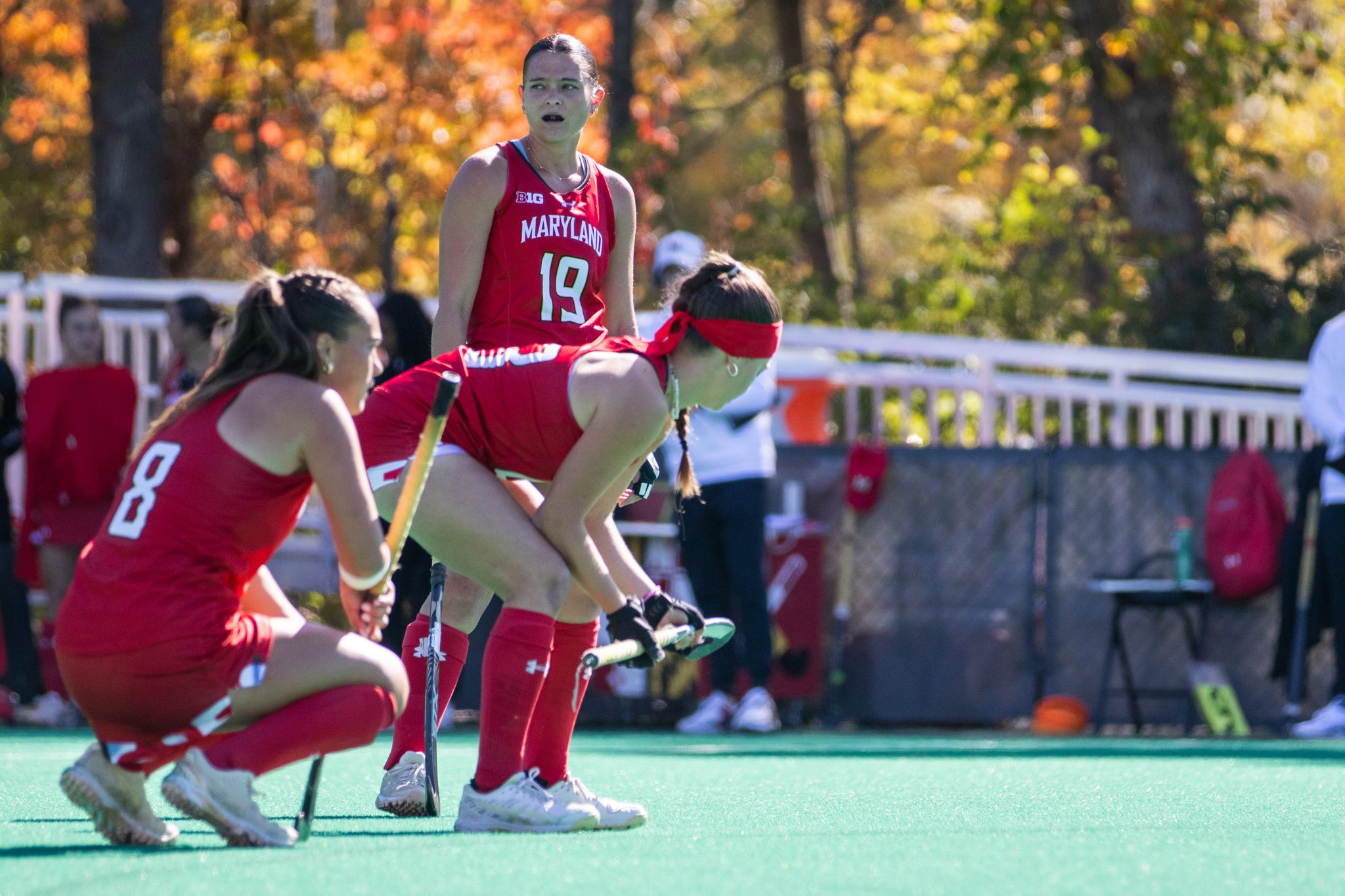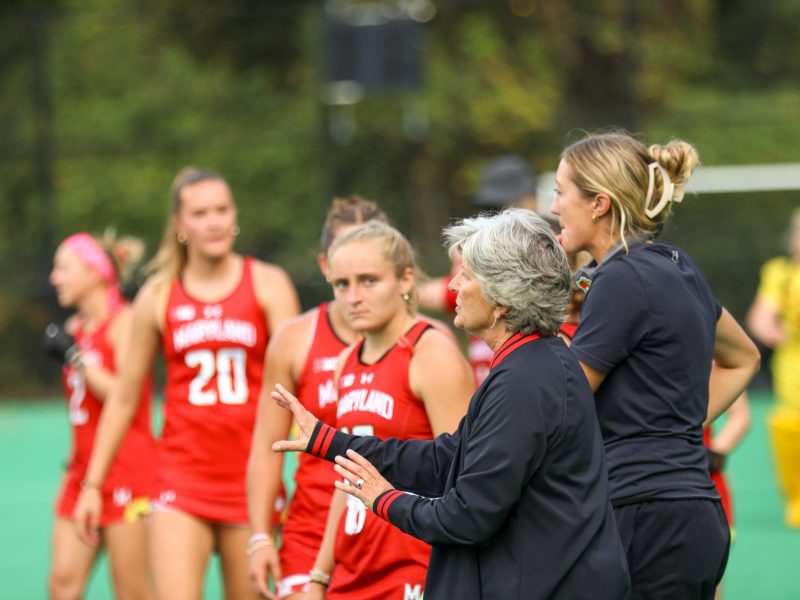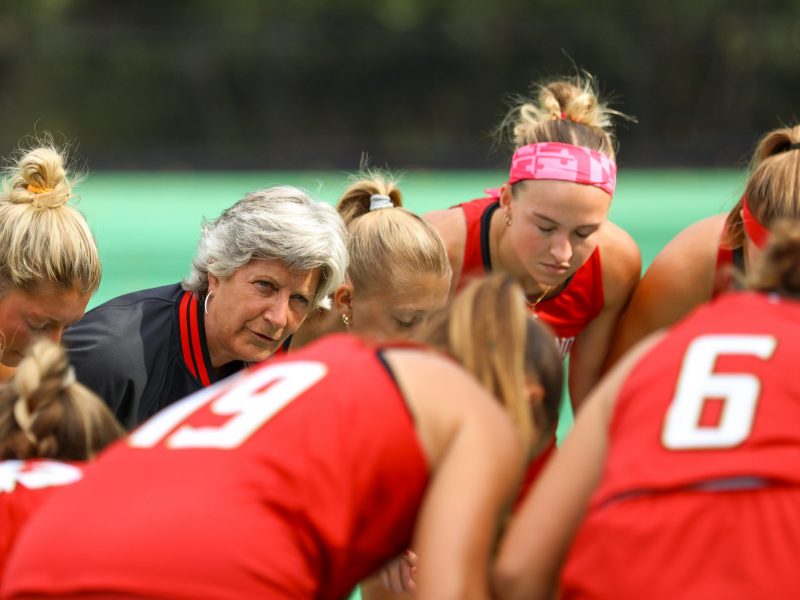Maryland field hockey came agonizingly close to notching statement victories throughout the season. More often than not though, the Terps came up marginally short.
All seven of their losses were single-goal defeats to teams ranked No. 13 or higher.
More remarkably, Maryland never trailed by more than one score at any point all season. Just one other Division I team — Northwestern, the 2024 national champions — can say the same.
Defining Maryland’s season by its losses is relatively unfair, given the competition it faced throughout. But for a program with such high expectations, it’s tough for the Terps to feel satisfied when so many opportunities eluded them.
Aside from the COVID-19 shortened 2020 season, Maryland’s 13 wins were its fewest since 1994. The Terps fell in the NCAA tournament’s first round for the first time since 2015.
“Standards are there aren’t they, and they’re all in front of us when you’re a program and a culture that has a history of winning championships,” coach Missy Meharg said. “It’s a very finite difference between winning and losing.”
Maryland’s first loss of the season — a 1-0 defeat to then-No. 5 Duke — foreshadowed an early trend. The game’s 1-0 score was the same when Maryland lost other top-five showdowns against Virginia and Northwestern in September.
Offensive inconsistency plagued the Terps in all three defeats. It was an understandable struggle.
[Recruiting roundup: 8 players sign with Maryland field hockey]
“We have seven new players that are really blending into this team,” Meharg said after the loss to Northwestern. “We’re still evolving in that way. People have different roles than they’ve had.”
Senior Hope Rose, Maryland’s leading scorer from the last two campaigns, slid from the forward lines to the midfield. But the senior still finished her 2024 season with 12 scores to lead the Terps once more.
Graduate midfielder Emma DeBerdine also returned with a new role after spending last fall training for the 2024 Olympics.
DeBerdine served in an attacking midfield position during her first four seasons with the Terps, scoring 23 goals. The Olympian sat deeper in the midfield this year, mobilizing Maryland’s transition offense by reading opposing defenses and delivering pinpoint passes.
The offensive changes started to cement themselves halfway through the regular season.
After scoring 17 goals across their first eight games — nearly half of which came against Lock Haven — the Terps totaled 22 in their eight October matches.
Maryland’s freshmen and transfers started taking on more defined roles in that span.
Freshman forward Ella Gaitan tallied one goal through the season’s first eight games before notching six in October. Ball State transfer Fleur Knopert also delivered crucial goals as an efficient scorer off the bench.
Freshman Annemijn Klijnhout and Vermont transfer Alina Gerke also added transition speed to a midfield that Meharg called the fastest in the country.
But the improvements didn’t alter Maryland’s season-long trend.
[Maryland field hockey’s season ends with 1-0 defeat to Duke in NCAA tournament]
A pair of 2-1 losses to Ohio State and Princeton were the precursors to the Terps’ most demoralizing defeat of the year.
Maryland was moments away from beating Michigan to reach the Big Ten tournament title game, but the Wolverines snatched that opportunity by scoring four seconds before the full-time buzzer sounded. Michigan later prevailed 4-3 in a shootout.
Meharg said she felt numb after that defeat. The sting seemingly carried into the next week’s NCAA tournament defeat against Duke.
After tagging Maryland with its first loss of the season in September, the Blue Devils fittingly handed the Terps their last defeat of the campaign — once again, 1-0.
“I felt Duke just wanted it more,” Meharg said. “I take responsibility. It’s about readiness, it’s about mindset, it’s about recognizing you have one time and one chance, and I think we fell off that in the opening of the match.”
Meharg’s sentiment from the season-ending loss speaks to Maryland’s 2024 as a whole. Opportunities were ever-present, but the Terps struggled to overcome similar hurdles.
With a solid cohort of starters expected to return next season though, Maryland should be primed to make positive strides in 2025.
“We had a lot of peaks and valleys on the field, off the field, but the number one thing that I loved about this team is their engagement for each other,” Meharg said. “They were a team that really grew together off the field.”



